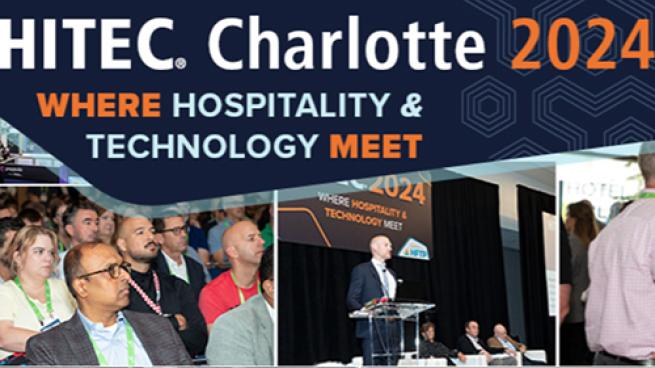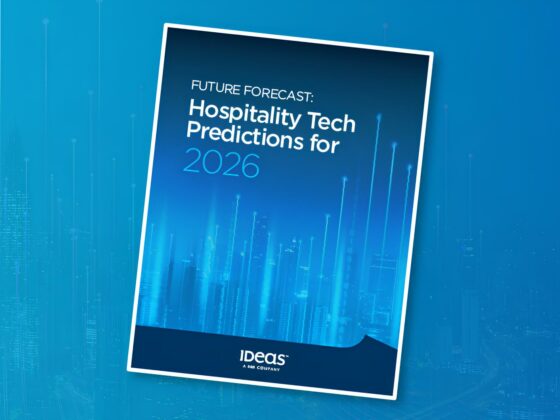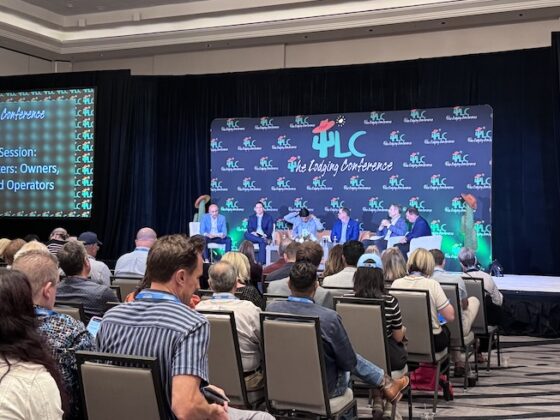
As the hotel industry continues to evolve, technology plays an increasingly critical role in shaping its future. During HITEC 2024, I had the opportunity to interview multiple hotel technology vendors, gaining valuable insights into the latest trends that have emerged over the past year. This two-part series will delve into these important tech trends and explore how they are poised to impact hotel operations. In Part 1, we will focus on the technological innovations and challenges that are redefining the hospitality landscape, including attribute-based selling, interfacing, GenAI use cases, and the adoption of modern tech stacks. These advancements promise to enhance efficiency, streamline operations, and drive profitability for hoteliers who are ready to embrace the future of hospitality technology.
Personalized Experiences with Attribute-Based Selling
One of the key trends discussed at the tradeshow was attribute-based selling (ABS).
“ABS is something that’s been talked about for a long time, and it’s nice to finally see it coming to fruition,” said Jacob Messina, CEO of Stayntouch. “Plus, it’s saving hoteliers and their staff valuable time by automating inventory management and fulfillment, thereby increasing profitability for hotels.”
Messina also pointed out a significant challenge: “Most PMS, CRS, and distribution systems in our industry are not built to support an attribute-based selling model. Instead, they’re built off the concept of room categories and it’s very difficult to unarchitect that. It’s why very few have been able to capitalize on and build to it. So, it will likely never become standard, but more modern players will be able to adapt and build towards it.”
Old technology formats may not be the only reason why some hoteliers and vendors are hesitant to embrace it.
Zucchetti North America’s CEO Mark Lewis-Brown notes that while his company is beginning to “dabble” in ABS, they’re remaining cautious. Why? Their research indicates ABS might actually reduce the number of sales options available to customers, and guests may not yet be ready to embrace this sales format within the hotel industry. This information, coupled with hoteliers’ own hesitation to switch to an ABS sales model, means Zucchetti North America is continuing to consider the viability of ABS over the coming months.
Breaking Down Barriers: The Challenge of Interfacing
Another major challenge discussed on the show floor was the issue of interfacing.
“We have 400 different interfaces, and we’re always considering: How many should we do? When should we do it? How can we do it? Will it provide a good ROI? And, of course, we have to worry about updating these interfaces regularly to improve their level of connectivity,” Lewis-Brown explained.
If dealing with interfaces is a headache for vendors, it can become a migraine for hoteliers. For this reason, Laura Calin, SVP at Oracle Hospitality, believes that hoteliers are looking for a solution where they won’t have to manage the interfacing.
“Hoteliers are looking for a unified platform where they don’t have to worry about interfaces between core solutions failing (like a separate PMS and CRS). Instead, they want a single image of the guest, of the reservation, of rates and inventory, groups, etc. They’re looking for technology that will remove friction and technology silos, allowing them to have complete visibility into their data in real time so that they can service the guest at any point during their journey. By removing friction between these interfaces, access to this type of platform will increase operational efficiency, revenue opportunities, and sales channels.”
Calin added, “Whether it’s for large enterprises or independent hotels, we want to create a hotel-in-a-box package where operators can have all the technology they need without any friction. And we’re well on our way to doing that.”
AI-Powered Solutions: GenAI Revolutionizing Hotel Operations
Of course, the use of GenAI was a very popular topic at HITEC. In fact, some attendees were overheard groaning at the overused buzzword. However, this doesn’t mean that vendors weren’t discussing some very interesting and innovative uses of the technology.
For example, when hoteliers have questions about how their software is supposed to operate, phone calls and emails to a customer support center are the standard operating procedure. But GenAI will make it possible for Sabre to provide hoteliers with near real-time answers to their questions. For the future, the company is working to not only answer questions but also use AI to prompt hoteliers if there is a specific action they would like the software to take. For example, “How do I load a new rate?” GenAI provides an answer then prompts, “Would you like me to load a new rate for you?”
“This is one way to take the very broad concept of artificial intelligence and turn it into a very tangible, practical, and valuable tool for customers,” says Scott Wilson, president of Sabre Hospitality.
Similarly, IDeaS is also looking at layering in conversational AI – via a private and secure infrastructure – to change the way hoteliers interact with its software. This is something it’s been working on since 2018 when its G3 product was integrated into Alexa and Siri.
“Rather than having to dig through many screens and push a lot of buttons in order to generate a report, hoteliers will soon be able to ask the software: ‘Show me X’ or ‘Produce this report’ or ‘Aggregate this data.’ Hoteliers will be able to have a conversation with technology, and that’s going to be a game changer,” explains Klaus Kohlmayr, Chief Evangelist & Development Officer, IDeaS Revenue Solutions.
For this technology to work effectively, hoteliers – not just the software – will need to be trained in what type of questions to ask and how to phrase them so that the software can reply with a cogent and logical response, adds Mike Chumas, VP, Global Marketing.







